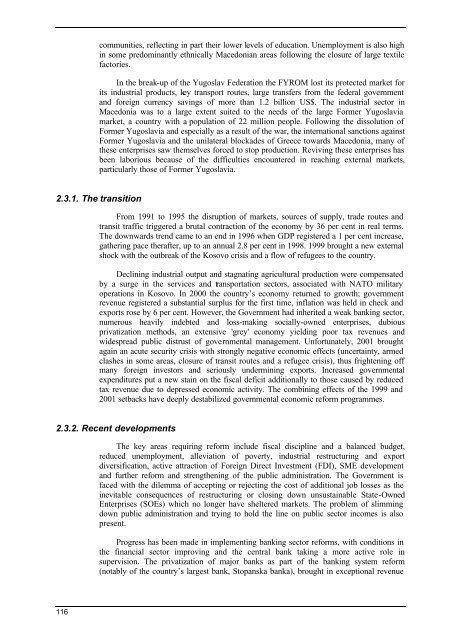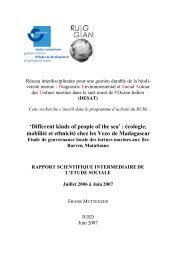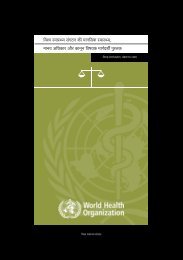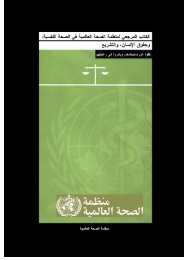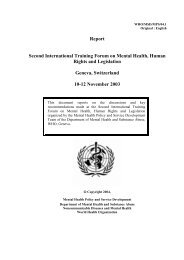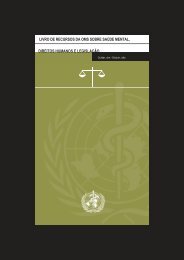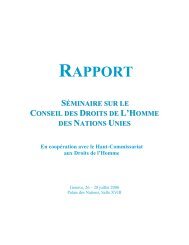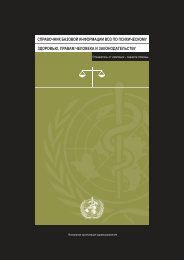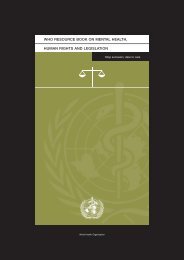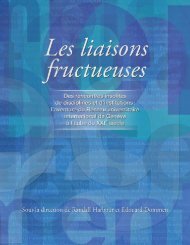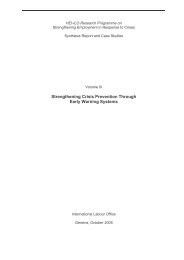Volume 1 Cedric - revised luca Final - RUIG-GIAN
Volume 1 Cedric - revised luca Final - RUIG-GIAN
Volume 1 Cedric - revised luca Final - RUIG-GIAN
Create successful ePaper yourself
Turn your PDF publications into a flip-book with our unique Google optimized e-Paper software.
communities, reflecting in part their lower levels of education. Unemployment is also highin some predominantly ethnically Macedonian areas following the closure of large textilefactories.In the break-up of the Yugoslav Federation the FYROM lost its protected market forits industrial products, key transport routes, large transfers from the federal governmentand foreign currency savings of more than 1.2 billion US$. The industrial sector inMacedonia was to a large extent suited to the needs of the large Former Yugoslaviamarket, a country with a population of 22 million people. Following the dissolution ofFormer Yugoslavia and especially as a result of the war, the international sanctions againstFormer Yugoslavia and the unilateral blockades of Greece towards Macedonia, many ofthese enterprises saw themselves forced to stop production. Reviving these enterprises hasbeen laborious because of the difficulties encountered in reaching external markets,particularly those of Former Yugoslavia.2.3.1. The transitionFrom 1991 to 1995 the disruption of markets, sources of supply, trade routes andtransit traffic triggered a brutal contraction of the economy by 36 per cent in real terms.The downwards trend came to an end in 1996 when GDP registered a 1 per cent increase,gathering pace therafter, up to an annual 2.8 per cent in 1998. 1999 brought a new externalshock with the outbreak of the Kosovo crisis and a flow of refugees to the country.Declining industrial output and stagnating agricultural production were compensatedby a surge in the services and transportation sectors, associated with NATO militaryoperations in Kosovo. In 2000 the country’s economy returned to growth; governmentrevenue registered a substantial surplus for the first time, inflation was held in check andexports rose by 6 per cent. However, the Government had inherited a weak banking sector,numerous heavily indebted and loss-making socially-owned enterprises, dubiousprivatization methods, an extensive 'grey' economy yielding poor tax revenues andwidespread public distrust of governmental management. Unfortunately, 2001 broughtagain an acute security crisis with strongly negative economic effects (uncertainty, armedclashes in some areas, closure of transit routes and a refugee crisis), thus frightening offmany foreign investors and seriously undermining exports. Increased governmentalexpenditures put a new stain on the fiscal deficit additionally to those caused by reducedtax revenue due to depressed economic activity. The combining effects of the 1999 and2001 setbacks have deeply destabilized governmental economic reform programmes.2.3.2. Recent developmentsThe key areas requiring reform include fiscal discipline and a balanced budget,reduced unemployment, alleviation of poverty, industrial restructuring and exportdiversification, active attraction of Foreign Direct Investment (FDI), SME developmentand further reform and strengthening of the public administration. The Government isfaced with the dilemma of accepting or rejecting the cost of additional job losses as theinevitable consequences of restructuring or closing down unsustainable State-OwnedEnterprises (SOEs) which no longer have sheltered markets. The problem of slimmingdown public administration and trying to hold the line on public sector incomes is alsopresent.Progress has been made in implementing banking sector reforms, with conditions inthe financial sector improving and the central bank taking a more active role insupervision. The privatization of major banks as part of the banking system reform(notably of the country’s largest bank, Stopanska banka), brought in exceptional revenue116


